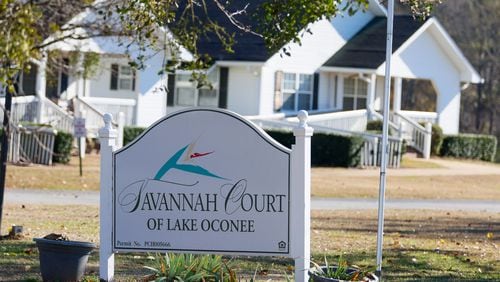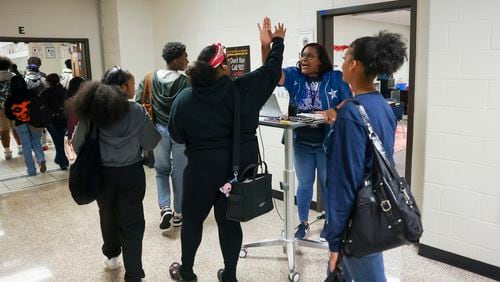Attorneys for Georgia’s Department of Community Health submitted a strongly worded brief Friday, detailing why they were making the case for the closure of Savannah Court of Lake Oconee, a 72-bed senior care home in Greensboro.
The document is the latest in a seven-month legal back-forth over whether the personal care home should have its license revoked. The state makes the case that the facility should close for two reasons: It is failing to comply with state law governing personal care homes, and it breached a March 2023 settlement agreement, which had allowed the facility to pay nearly $10,000 in outstanding fines over a protracted period in exchange for certain requirements, like quarterly audits by an independent contractor.
That had been the second settlement agreement the state had entered into with the facility. There had been anotherin July 2021.
“The Department’s position on entering into another settlement agreement is underscored by the adage of ‘fool me once, shame on you, fool me twice, shame on me,’” the document notes.
Savannah Court received the closure notice in August after regulators with DCH found seven violations during a pair of inspections on July 31 and Aug. 1. These violations, the state has since argued, underscored a lack of commitment to the settlement agreement and state law.
“The July 31 and August 1, investigation further illustrates that SCOLO has not taken the safety of its citizens and the concerns of this Department seriously and continues to maintain an environment that raises concerns about their ability to provide a safe environment for a vulnerable segment of the population,” the brief states, explaining concern over the facilities “seemingly lackadaisical approach to correcting their violations.”
Savannah Court was the subject of a recent investigation by The Atlanta Journal-Constitution that found more than 70 state violations since 2021, including the death of two residents in April 2022 and a sexual assault that occurred in October after the state had issued its license revocation notice.
The state in the brief submitted Friday, detailed this sexual assault as another piece of evidence for why the facility should close. They did not mention, however, that on October 24 — two weeks after the assault — they had agreed to push back the license revocation hearing, which was originally scheduled for Nov. 1, so that a third settlement agreement could be discussed.
Ultimately no such agreement was made and a hearing commenced on Jan 3, and then reconvened on Jan. 30 and Feb. 1.
Instead of having closing statements presented in court, Administrative Law Judge Charles Beaudrot asked for written arguments.
“The Department understands the enormity of the consequences and challenges that come with the closure of a facility of this size within this community. However, the residents and the community at large deserve to know that their only choice should not be a bad choice,” the state’s brief closed.
Senior Living Management, the Florida-based parent company of Savannah Court of Lake Oconee, didn’t respond to a request for comment on the state’s most recent filing. The facility has until March 29 to file a response with the administrative court. The judge will likely make a decision by the end of April.
About the Author






